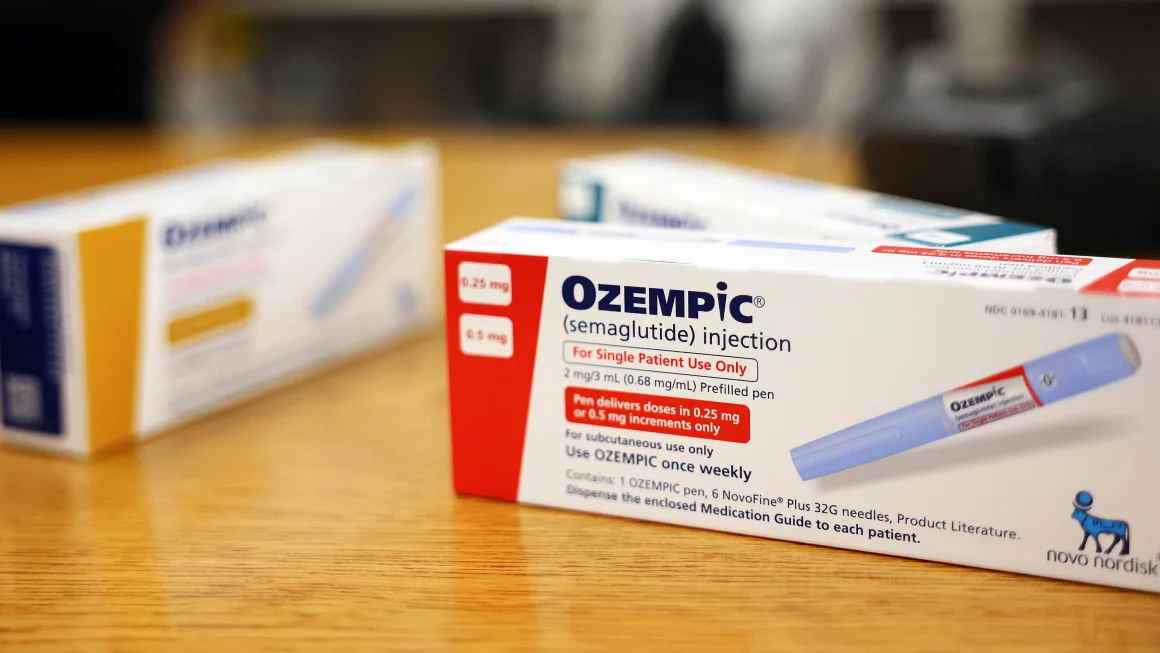Wegovy and Ozempic: Weight-loss jabs may be linked to the condition that can cause blindness, study finds
Jul 3, 2024 / GMT+6
People taking semaglutide, found in medications like Wegovy and Ozempic, have a fourfold increased risk of developing optic nerve disorders if they have diabetes.
For people who are taking semaglutide for weight loss and have diabetes, a study suggests they might face a higher risk of developing an eye condition linked to potential blindness. Users of semaglutide, like Wegovy and Ozempic, were found to be over four times more likely to be diagnosed with non-arteritic anterior ischemic optic neuropathy (NAION).
NAION occurs when arteries that supply blood to the optic nerve in the eye are blocked, leading to potential vision loss from oxygen deprivation and nerve damage. This condition affects 10 in 100,000 people in the general population and currently lacks a known treatment.
Published in JAMA Ophthalmology, researchers from Harvard University analyzed data from 16,827 patients treated at Mass Eye and Ear Harvard Teaching Hospital over six years. Among them, 710 had type 2 diabetes, and 194 of those were prescribed semaglutide.
The study included 975 overweight or obese patients, with 361 prescribed semaglutide. Among those with type 2 diabetes, 17 NAION events occurred in semaglutide users, compared to six in those using other diabetes medications. Researchers observed that over three years, 8.9% of semaglutide users experienced NAION, compared to 1.8% using other drugs.
The study revealed that overweight or obese individuals prescribed semaglutide were over seven times more likely to develop NAION compared to those using other weight-loss medications. Among these participants, 20 NAION events occurred in semaglutide users, while only three events were reported in those using other drugs. Over three years, 6.7% of semaglutide users experienced NAION, in contrast to 0.8% among those using other weight-loss medications.
Prof. Joseph Rizzo, an ophthalmology professor at Harvard Medical School, emphasized the need for caution regarding the study's findings. He highlighted the importance of future research involving larger and more diverse populations to better understand these implications. Patients, especially those with existing optic nerve issues like glaucoma or significant visual loss from other causes, should discuss this information with their doctors.
Graham McGeown, honorary physiology professor at Queen’s University Belfast, noted that while the research suggests a link between semaglutide treatment and optic neuropathy, larger studies are needed to confirm these findings.
With the increasing use of semaglutide, including its potential expansion beyond obesity and type 2 diabetes treatments, further investigation into potential side effects is warranted. Balancing possible drug risks with expected benefits is crucial.
Since 2023, Wegovy, known as semaglutide, has been prescribed for weight loss on the NHS.
A spokesperson from Novo Nordisk, the manufacturer of Ozempic and Wegovy, emphasized patient safety, stating they take reports of adverse events seriously. They noted that non-arteritic anterior ischemic optic neuropathy is not listed as a known side effect in the product information for semaglutide formulations like Ozempic, Rybelsus (for type 2 diabetes), and Wegovy (for weight management), as per approved labels.







